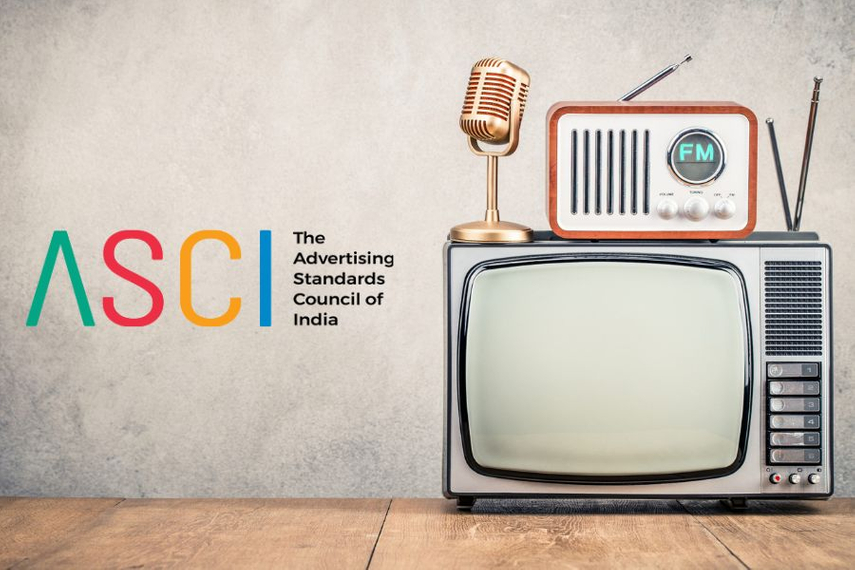
The Advertising Standards Council of India (ASCI) published its Annual Complaints Report, which analysed advertisements that were considered objectionable in the fiscal year 2023–24.
Upon examining 10,093 complaints and investigating 8,299 advertisements, it found that the majority of violations (81%) were on account of misleading claims. This was followed by ads that promoted harmful situations or products at 34% (the same ad can be processed for multiple objections).
Digital ads accounted for 85% of ads processed, and had a lower compliance rate of 75%, as compared to 97% for print and TV. According to the report, this raises serious questions about the online safety of consumers, which it had highlighted last year as well. Additionally, 94% of the ads that were processed were picked up suo moto by ASCI.
Further, 49% of the advertisements picked up by ASCI were not contested by the advertisers. A total of 98% of cases eventually required modification as they violated the ASCI Code.
Saugata Gupta, chairman of ASCI, said, “As digital emerges as a dominant media in which advertisements thrive, ASCI has geared up to the challenges through constant investment in technology. We will continue to improve our processes and expertise to ensure nimble and transparent resolution of objectionable ads. At this critical juncture, we look forward to collaborating with all stakeholders to promote ethical advertising and calling out advertisements that eventually erode trust in advertising.”
This year, healthcare emerged as the most violative sector, contributing to 19% of cases, followed by illegal offshore betting (17%), personal care (13%), conventional education (12%), food and beverage (10%), and realty (7%). Baby care emerged as a new contender in the top violator category, with influencer promotions contributing to 81% of baby care cases.

Out of the 1,575 advertisements processed in the healthcare sector, 1,249 violated the Drugs and Magic Remedies Act of 1954, and were reported to the sector regulator. Also, 86% of the healthcare ads appeared on digital platforms.
1,311 advertisements for illegal betting were sent to the appropriate authorities for further action. Of the 1,064 ads that ASCI examined in personal care, 95% of them appeared online, with 55% being influencer non-disclosure cases.
Celebrities continued to appear in ads that were in violation of the ASCI code. The body processed complaints against 101 ads featuring celebrities, of which 91% required modification. 104 celebrities appearing in these 101 ads were found to be in violation of the celebrity guidelines as they could not provide any evidence of due diligence.
It may be noted that due diligence is also a requirement under the Consumer Protection Act, 2019. The top five violative categories for celebrity violations were personal care (22%), food and beverages (21%), illegal/betting (20%), healthcare (9%), and durables (6%).
In addition to processing objectionable ads through its own processes, ASCI reported 3,200 advertisements directly to various regulators for violations of the law. Besides the 1,311 offshore illegal/betting ads escalated to the Ministry of Information and Broadcasting and the 1,249 healthcare ads reported to the Ministry of Ayush for potential violations of the Drugs and Magic Remedies Act of 1954. 493 ads included the realty sector, 82 ads were for alcohol beverages, and 65 were for tobacco and tobacco-based products.
To combat these trends, ASCI, under the aegis of the ASCI Academy, has introduced the ASCI Guide to Responsible Advertising certification course. Designed for students and professionals, it aims to support the advertising ecosystem, achieve ethical advertising standards and compliance with the ASCI Code and various regulations, and reduce the incidence of objectionable advertising.

Manisha Kapoor, CEO and secretary general of ASCI, said that 3,200 advertisements were shared with various regulators, such as Ministry of Information and Broadcasting, Ministry of Ayush, and MahaRera, for direct violations of the law. She sees this as a continuing area of focus.
“Sectors like healthcare emerging at the top are a significant concern for all citizens. With the highest number of violative ads seen online, advertisers and platforms must work more closely with regulators and self-regulators to keep consumers protected. ASCI Academy’s recently launched e-learning courses on responsible advertising and responsible influencing is a significant step to increase the industry’s capacity to create ads with greater understanding of regulatory standards and ensure that consumers are not exposed to objectionable advertising in the first place,” she added.



.jpg&h=334&w=500&q=100&v=20250320&c=1)


.jpg&h=334&w=500&q=100&v=20250320&c=1)


.jpg&h=334&w=500&q=100&v=20250320&c=1)




.jpg&h=268&w=401&q=100&v=20250320&c=1)




